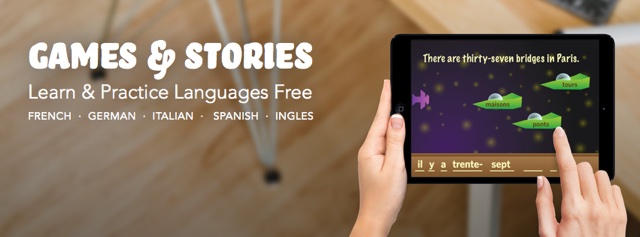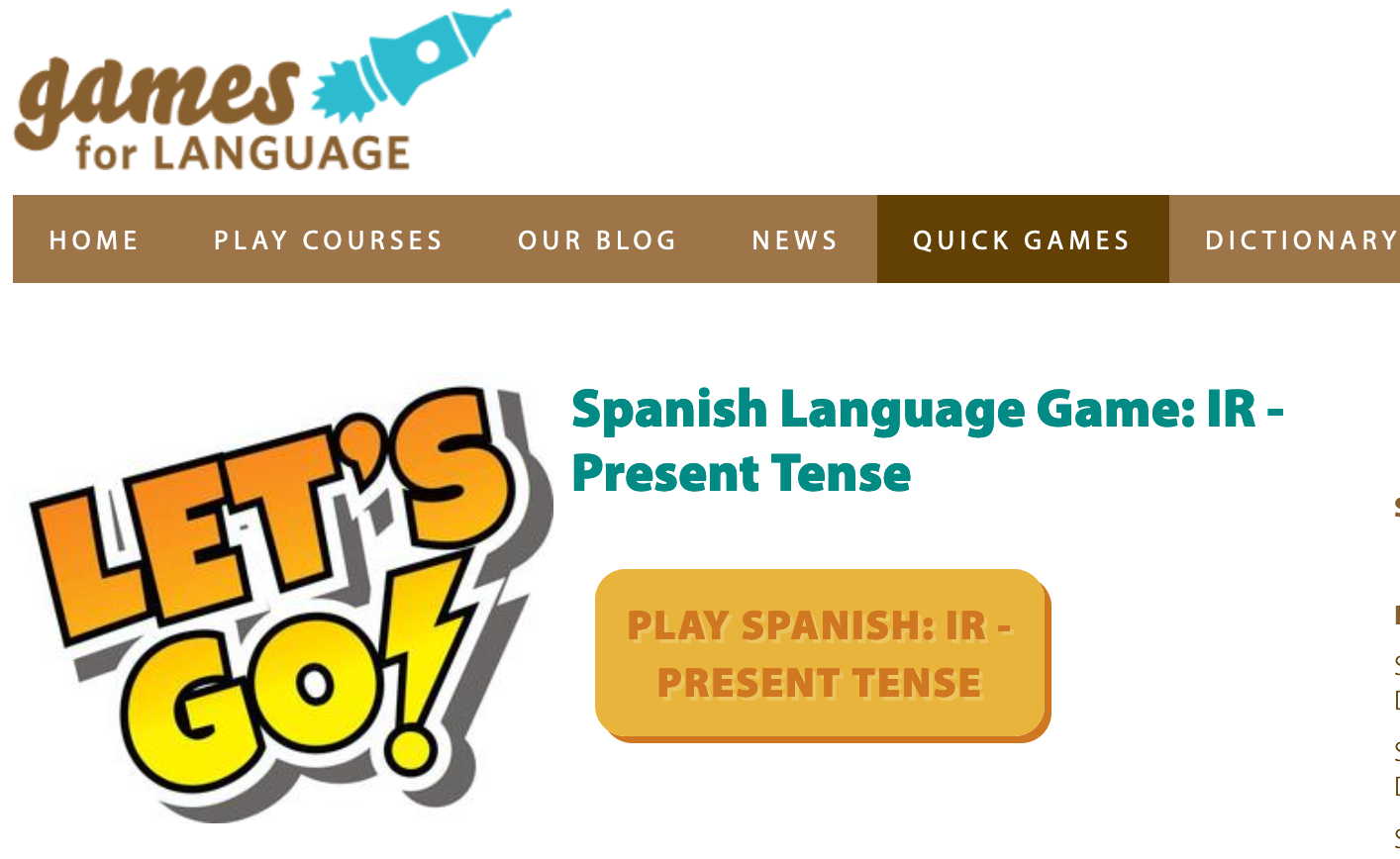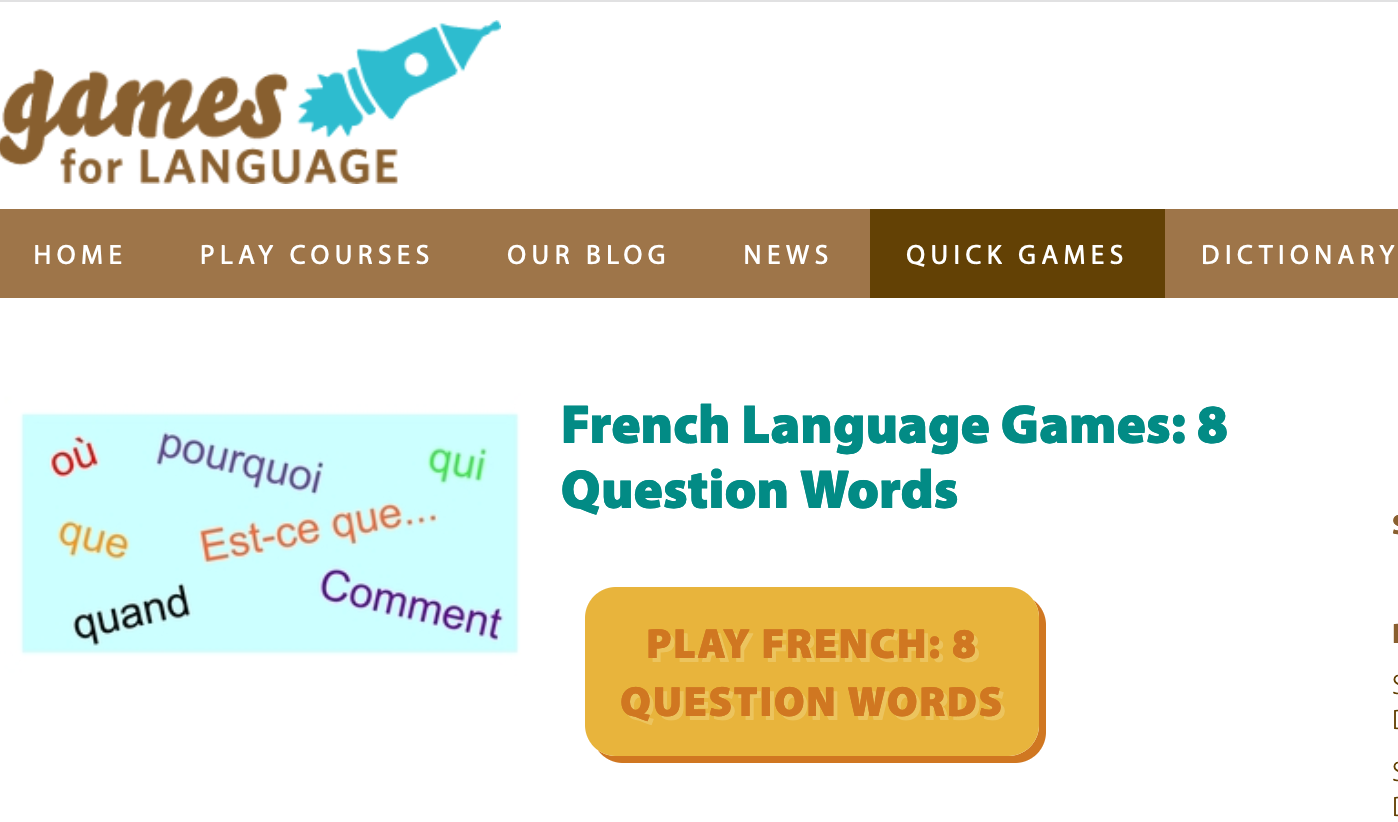Language Learning Games with Gamesforlanguage
 During the Covid-19 Pandemic we experienced an increased interest in GamesforLanguage travel-story courses and quick language learning games. As our free Quick Language Games and Podcasts can be played without registering, we don't know the countries of origin of those players.
During the Covid-19 Pandemic we experienced an increased interest in GamesforLanguage travel-story courses and quick language learning games. As our free Quick Language Games and Podcasts can be played without registering, we don't know the countries of origin of those players.
Our free 36-lesson courses of the four European languages, French, German, Italian and Spanish, however, require users to register, so they can continue their course(s) where they left off when returning.
From the addresses (e.g. the “.edu” e-mail part) we know that many of these courses are played by school classes, just recently the Italian course by 46 students in Australia.
Whether teachers like our games and courses because they are completely free, without any upsell emails and Google ads, or simply because they are a fun language learning break, we often don't know. We've heard all those reasons and encourage more teachers to try our courses and games with their language classes.
Although we don't know the countries from where the Quick Language Games are accessed, we can tell which games have become favorites. Here are the favorite Quick Language Games for our four main languages:
Quick Spanish Games
 The clear winner for Spanish is the irregular verb "to go": "Ir - Present Tense". I agree, it's a fun game. Since beginning of April, it was played well over 1200 times.
The clear winner for Spanish is the irregular verb "to go": "Ir - Present Tense". I agree, it's a fun game. Since beginning of April, it was played well over 1200 times.
The first part is a Shootout game to learn/review the present tense forms of "ir". In the second part, you play the Memory game to learn 4 common nouns. The third and last part is a Word Invader game with which you put together 8 short sentences using different forms of "ir" plus one of the four nouns. (For example, the Spanish equivalent of : "She's going to the park." "We're going to the café." "I'm going to the station.")
Other popular Quick Spanish Games are: "8 Question Words"; "Tener - Present Tense"; "Hello Goodbye".
Quick French Games
 "8 Question Words" is the hands-down winner for French. That has been true for quite some time, maybe also because of the particular French way of asking a question.
"8 Question Words" is the hands-down winner for French. That has been true for quite some time, maybe also because of the particular French way of asking a question.
The first part consists of Memory and Snap Cloud games, to learn/review 7 question words and the question phrase: "est-ce que ?" These are followed by a Balloon Word (listening) game. To finish up, you hear and then reconstruct 3 common questions with the Word Invader game.
Other popular Quick French Games are: "Days of the week"; "Modal Verbs"; "The Verb faire".
Quick German Games
 In recent weeks, the surprising favorite German game has been "At home": "Zu Hause". This game is based on a 7-sentence conversation between two people who sit next to each other on an airplane to Germany.
In recent weeks, the surprising favorite German game has been "At home": "Zu Hause". This game is based on a 7-sentence conversation between two people who sit next to each other on an airplane to Germany.
You'll learn and practice the individual words as well as each of the full sentences using various games such as Snap Clouds, Say It, and Word Hero. At the end you'll hear the conversation again and you'll very likely manage to listen without translating in your head.
Other popular Quick German Games are: "Present Perfect Tense 1"; "The Modal Verb können"; "Wie komme ich...?"
Italian Quick Games
 The irregular verb: "Avere - Present Tense" is the champion game for Italian. No surprise there, the verb is super useful and needs practice.
The irregular verb: "Avere - Present Tense" is the champion game for Italian. No surprise there, the verb is super useful and needs practice.
You first see the present tense forms and then test yourself with the Shootout game. You'll then learn 4 basic nouns with the Memory and Flash Card games. Finally, with the Word Invader game, you put together 6 simple sentences using the words you learned. (For example, the Italian equivalent of "I have the key." "He has the photos." "They don't have the address".
Other popular Quick Italian Games are: "Days of the Week"; "Numbers 1-20"; "mi chiamo".
Quick Language Games are a great way to take a quick time out and listen to and practice a few morsels of the new language you are learning. You will be surprised how well they will “stick”.
Note: On our German Facebook page: Learn German - A Game a Day, you'll find a different Quick German Game every day. We have close to 100 of them at this time, and continue to create more of them.

 Foreign language skills may not always be required, but the benefits multilinguals bring to organizations are real — especially now that the market is getting more competitive.
Foreign language skills may not always be required, but the benefits multilinguals bring to organizations are real — especially now that the market is getting more competitive. Learning new languages doesn’t just give you an extra skill, it also boosts your problem-solving ability, creative thinking, and memory.
Learning new languages doesn’t just give you an extra skill, it also boosts your problem-solving ability, creative thinking, and memory.  If you’re aiming for the top, know that you need to learn how to understand and guide the people below you.
If you’re aiming for the top, know that you need to learn how to understand and guide the people below you.  Not all prospective partners will have English as their primary language (nor will they be fluent in it), so knowledge of their native language can help you build valuable connections with more people.
Not all prospective partners will have English as their primary language (nor will they be fluent in it), so knowledge of their native language can help you build valuable connections with more people.